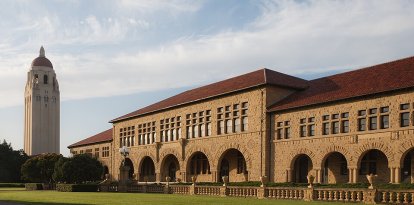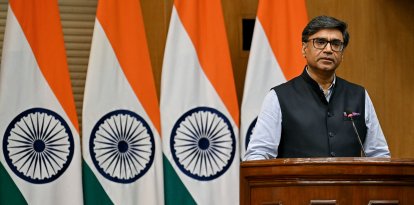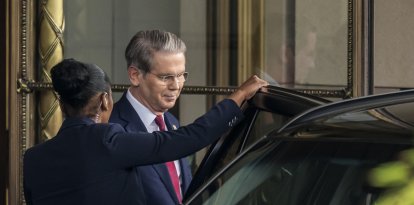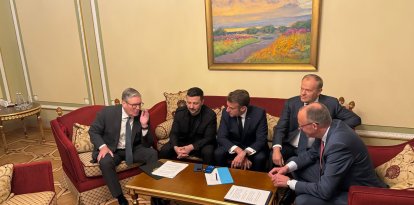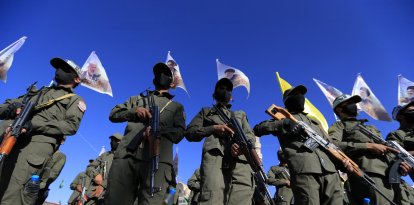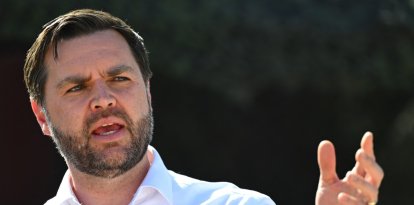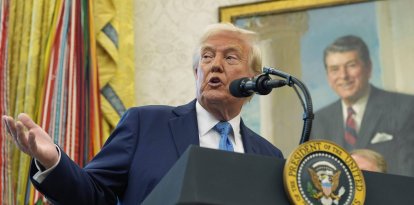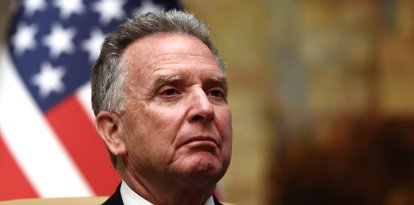Venezuela: dictator Maduro orders a “defensive action” in the Atlantic before the arrival of a British warship to protect Guyana
Tensions between the countries are worsening while Chavismo tries to continue to use the Essequibo issue as political propaganda.
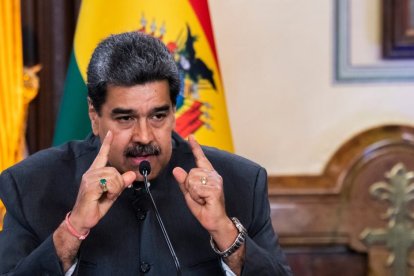
(Cordon Press)
Wearing a military suit on a mandatory national network for radio and television, the Venezuelan dictator, Nicolás Maduro, ordered a “defensive action” in the Atlantic upon the arrival in Guyana of the British warship HMS Trent.
The arrival of the ship to the small South American country occurs amid tensions over the disputed territory of Essequibo, an area rich in minerals and oil with almost 62,000 square miles (160,000 square kilometers) that Venezuela and Guyana have been fighting over for more than two centuries with territorial boundaries, international agreements and many diplomatic negotiations over the years.
Maduro, who spoke about the territorial conflict during his end-of-year message, said that the presence of the British Navy ship is a “threat [...] against peace and sovereignty.”
Meanwhile, according to El País, Bharrat Jagdeo, the Guyanese vice president, stated that the presence of HMS Trent was coordinated in advance, long before tensions with Venezuela began.
Jagdeo also assured that his country has no intention of attacking the neighboring country, with which a bilateral non-aggression agreement was signed in mid-December.
“These are routine measures that are planned for a long time, they are part of building defense capacity. We do not plan to invade Venezuela; President Maduro knows this. We have no plan to take offensive action against Venezuela,” said the Guyanese vice president.
However, the Venezuelan regime saw the presence of the ship as a “hostile provocation” and therefore mobilized an operational force of 5,600 officers to the country’s Atlantic coast, which includes disputed territorial waters.
“Venezuela urges the Guyana authorities to take immediate action to remove the ship and refrain from continuing to involve military powers in the territorial controversy,” the Venezuelan Foreign Ministry said in a statement.
Meanwhile, Chavismo is taking advantage of the Essequibo conflict to gain political capital, using the disputed territory as propaganda for its internal control of power.
After the primary elections organized by the opposition, which mobilized more than two million Venezuelans and positioned María Corina Machado as the new leader and face of the opponents of Chavismo, the Maduro regime carried out a consultative referendum on Essequibo that failed to attract people to the polls and whose results are in question.
After that referendum, Chavismo attacked a group of opponents close to Machado, baselessly accusing them of conspiring with American multinationals to sabotage Venezuela’s interests concerning Essequibo.
As a result, various political analysts assure that the Maduro regime is using the Essequibo statement to increase its level of repression, declare a potential state of exception and control communication narratives ahead of 2024, an electoral year where presidential elections will be held; these elections, for the moment, do not have guarantees and have only partial approval from the Biden Administration.
RECOMMENDATION
